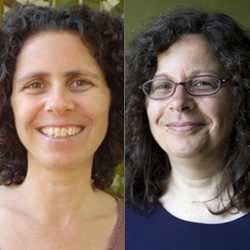

NVC Resources with Miki Kashtan
-
NVC practice is based on several key assumptions and intentions. When we live based on these assumptions and intentions, self-connection and connection with others become increasingly possible and easy, helping us contribute to a world where everyone’s needs are attended to peacefully.
-
In this brief audio segment, Miki works with a woman whose teenage daughter rejects her use of NVC, guiding her in a process of self-awareness and acceptance.
-
If you dread family gatherings because of family tensions, you can find ways to excavate through piles of hardened judgments and hopelessness, build on your inner strength, and engage with family conflicts with open-hearted curiosity, greater presence, and connecting with what really matters to everyone.
-
I want to hear others through the lens of the meaning their actions have for them rather than through the effect their actions have on me. The very root of empathy resides in this fundamental shift. Whenever someone’s actions are at odds with our own needs, most of us, most of the time, do the latter. In that way, we keep our attention on ourselves rather than on the other person. We cannot be in empathy when we are focused on how things affect us. Miki Kashtan poignantly shares about the challenges of empathizing with another when we really don't understand their actions.
-
Miki demonstrates how to work with judgmental thinking, offering a two-step process to shift from right/wrong thinking about our disagreements to a more open-hearted state of being.
-
How does change take place? In this brief segment, Miki explores the three key ingredients that make change possible for individuals as well as for societal change.
-
In June, 1996, I had an epiphany. In a motel room in Indiana, the night before returning home from a solo camping trip in Michigan and Canada, I discovered how much I had lost in my life because of so fiercely protecting myself. Up until that day, bringing forth my vulnerable self was to be avoided at all costs, which kept me numb much of the time, disconnected from myself and from much of life. Alone in my room, I cried, I talked out loud, and I finally exclaimed to myself that I wanted to reclaim every last bit of my vulnerability, just like I had it as a child.
-
Do you want to befriend your needs and live without shame about them? Would you like to increase your inner freedom by letting go of attachment to outcome? Join Miki Kashtan to learn skills and practices that will enable you to want fully without attachment.
-
CNVC Certified Trainer Miki Kashtan talks with radio show host Hollis Polk about strategies for communicating with family members whose political views oppose our own.
-
How can we express ourselves in a way that supports a natural flow of connection while maintaining a focus on NVC consciousness? This handout from CNVC Certified Trainer, Miki Kashtan, offers seven options that support NVC enthusiasts in evolving from classical to colloquial NVC language.
-
Miki Kashtan explores how to respond to group conflict wisely when you’re not directly involved.
-
Miki Kashtan helps a mother restore connection with her daughter after a painful conflict.
-
Miki Kashtan hosted Living Room Radio Show on KPFA Radio 94.1FM in Berkeley, California, USA. Listen as she works with a a woman whose relationship is challenged by what happens when her lover drinks. In this segment, Miki encourages the caller to get support for her stress, find an outlet for it and receive empathy. Miki addresses the challenges of addiction, the self-judgment of trying to meet needs by drinking and the pain this causes for everyone involved. She further suggests that the caller try to connect to the needs he is trying to meet by drinking, and to identify those that are actually being met and those that aren’t.
-
Connection requests focus on the quality of connection between people instead of on any particular strategy or solution. While the core motivation for a connection request may be connection with the other person, varied internal states and needs may help guide us toward different types of connection requests. Self-connection and understanding of our motivation in making a connection request can therefore greatly support our capacity for discovering and articulating what specifically we want from the other person that we believe may contribute to connection.
-
Ask the Trainer: "In trainings I say our jackals are thoughts and now I've come to wonder if all thoughts are jackals...?"
-
Exploring how to keep NVC natural and authentic without sounding mechanical or formal.
-
Exploring how stories and unmet needs each influence the cause of our feelings in NVC.
-
Miki Kashtan shares how to build trust, balance power, and welcome honest “no’s” in dialogue.
-
Miki Kashtan shows how translating judgments into needs transforms family conflict and connection.
-
Miki speaks to peace activists about connecting with the life vision in those who stimulate pain.

Quick Links
Subscription Preferences
Stay In Touch!
Looking for ways to keep up with NVC Academy news, get special offers, free resources, or words of inspiration? Here are five ways to stay engaged:











